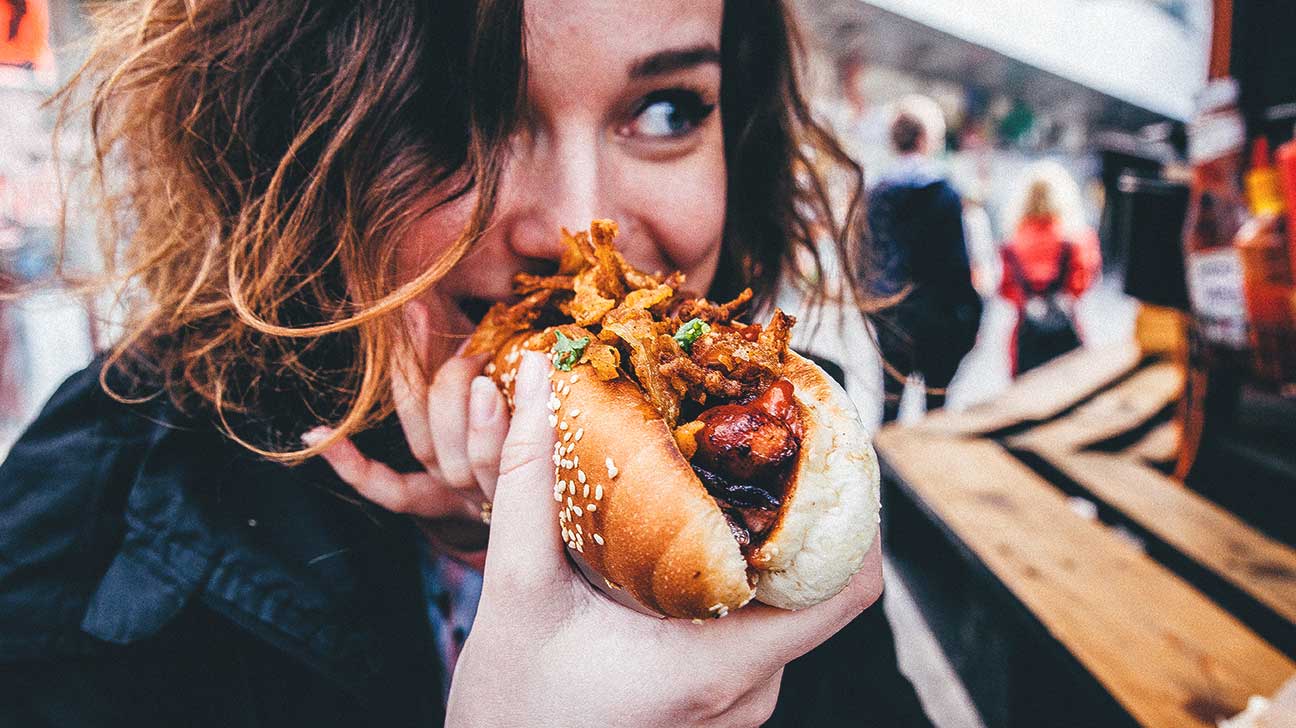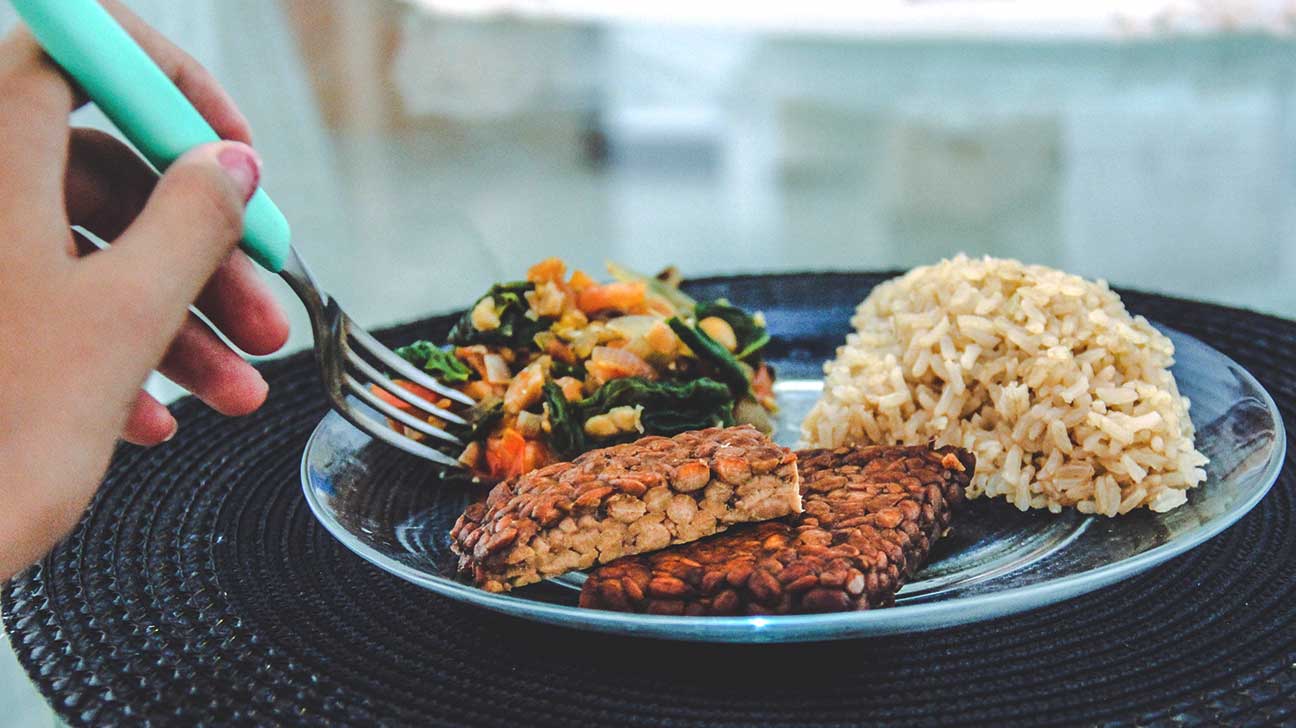Researchers say going on and off diets every two weeks can result in more weight loss. The reason may be related to your body's "famine reaction."
Everyone has a trick or dieting tip that helped them shed 5, 15, or even 55 pounds.
Drink this three times a day. Eat that once a week. Take this daily.
As strict diets such as the keto diet and intermittent fasting are gaining steam, it seems there’s nothing most Americans won’t do to drop a few pounds.
But the reality is, weight loss typically comes down to two things: eat less and move more.
Now, a study published in the International Journal of Obesity says the “eat less” portion of the weight-loss equation may need a little adjustment.
Cheat to lose?
The study from researchers at the University of Tasmania found that people who dieted for two weeks and then didn’t restrict their calories for two weeks actually lost more weight and more fat than people who dieted continuously.
For the study, 51 obese men were assigned to one of two groups.
The first group cut calories by one-third for 16 weeks.
The second group cut calories by one-third for two weeks and then took a “break” and ate their maintenance level of calories for two weeks.
They repeated these “cheat breaks” for the full 16 weeks of the study.
At the end of the study, the men who took the break from their diets lost about 50 percent more weight than the men in the other group.
Plus, they shed more fat than the control group.
Six months later, the researchers did a follow-up to see how well the weight loss was maintained.
Both groups regained some weight, but the men who used breaks during their diet were still on average 18 pounds lighter than men in the control group.
What’s so great about cheat breaks?
Dieting requires you to eat fewer calories than you burn in a day.
With a calorie deficit, your body must use fuel — stored fat — to keep your energy up. Ultimately, this can result in weight loss.
But there’s a dieting catch-22 that often snags those seeking to lose weight.
When you restrict calories, your appetite actually increases. Plus, you’re burning fewer calories at rest, which means you need less food.
This “famine reaction” results in a weight-loss plateau or even a gain for many people.
Cheat breaks give your metabolism a bit of a boost by convincing your body the “famine” is over.
Your metabolism increases and you’re able to break through the stalled weight loss.
Cheat breaks also allow for humans to be humans, says Samantha Scruggs, a registered dietitian who works with individuals in weight loss, improving health and vitality, and emotional eating.
“I think this diet fits into a real and busy lifestyle that most of us live,” Scruggs told Healthline. “We often commit to a diet program for a little while and then ‘fall off the wagon’ and then decide to give up. If that sounds like you, this study gives a lot of hope that once you fall off, you can get back on and continue your diet and actually potentially lose more weight doing it that way due to avoiding the dreaded drop in metabolism and plateau that occurs for so many and also causes such a loss of motivation.”
For David Ezell, clinical director of Darien Wellness, a counseling and wellness group in Connecticut, the study reinforces something he’s done in his own life for a while.
Ezell uses periods of “feeding up and then feeding down,” which echoes the same techniques this new study used.
The goal is to keep the metabolism in flux and prevent a plateau.
“Our bodies will only allow a certain amount of weight loss before a shift occurs and the fat, which the body sees as its most valuable asset, is conserved,” Ezell told Healthline. “Healthy weight loss — the loss of body fat — slows to a crawl. This plateauing is a key survival mechanism on the Serengeti but not so helpful in the suburbs of the USA.”
How to practice cheat breaks
Intermittent energy restriction — another way to say occasional dieting mixed with no dieting — is not yet as en vogue as more restrictive diets, but it should be, Scruggs says.
“Intermittent fasting is where you fast for 12 to 18 hours, and then eat, usually without much if any restriction, for the other 6 to 12 hours over the day,” Scruggs says. “Intermittent energy restriction, on the other hand, is where you follow a calorie-restricted diet for several weeks and then switch to a two-week period where you follow an eating pattern that meets your energy expenditure exactly.”
Theoretically, Scruggs says, this latter two-week period wouldn’t produce any weight loss but would help you maintain your weight.
Don’t be tempted to select a “cheat day” in the middle of a week of dieting. The study, Scruggs says, points out a day isn’t enough to change your body’s fat-burning dynamics.
“Cheat days may not allow for the time to reset your body’s metabolism that the full two-week period of iso-caloric intake would,” she explained.
If this diet technique sounds like something you’d like to try, you can get started by calculating your calorie needs for weight maintenance and weight loss.
Online tools are available or you can meet with a registered dietitian who can help you create a plan specific to your goals.
Once you have your calorie goals, select a week to start and closely follow the weight-loss calorie requirements for two weeks.
At the end of that period, try two weeks at your weight maintenance calorie level.
And then repeat for several months to see how much you’re able to lose.
“Even if you maintain your weight for a week, then lose the next week, you are still making progress toward your overall goal,” Scruggs said.
Your Poop May Be Able to Tell You What Diet Is Best for You
Researchers say different diets work better on different people, depending on what kind of bacteria they have in their gut.
Have you ever known someone who seems to lose weight simply by thinking about dieting?
Meanwhile, you can follow expert advice for weeks and months, only to lose maybe 1 pound for every 5 pounds they lose?
It’s frustrating, right?
And it can be that thing that convinces you that dieting isn’t worth it.
It turns out that for some people… it might not be.
At least, not in the traditional sense.
A recent study out of Denmark analyzed feces samples of 57 people who were following either a New Nordic diet (lots of fruit, vegetables, fiber, and whole grains) or an average Danish diet.
Researchers found that people with a higher proportion of Prevotella intestinal bacteria compared to Bacteroides intestinal bacterial lost an average of about 7 pounds when following the New Nordic diet as opposed to the traditional Danish diet.
For those with less Prevotella, there was no weight loss difference between the two dieting groups.
What the research means
The gist of the research was pretty simple.
Traditional dieting advice worked for participants with certain gut bacteria levels.
But for 50 percent of the study participants, that same advice was essentially useless.
Mads Fiil Hjorth, a study researcher and assistant professor at the Department of Nutrition, Exercise and Sports at the University of Copenhagen, explained, “The study shows that only about half of the population will lose weight if they eat in accordance with the Danish national dietary recommendations and eat more fruit, vegetables, fibers, and whole grains. The other half of the population doesn’t seem to gain any benefit in weight from this change in diet.”
Healthline spoke about the study results with Kristin Kirkpatrick, MS, LD, RD, a licensed, registered dietitian and wellness manager at the Cleveland Clinic Wellness Institute.
“I agree 100 percent that there is no one-size-fits-all approach to weight management and weight loss,” she explained. “I’ve found with my own patients that some individuals may work well with one approach but not with others. That’s why it’s so important that clinicians find as personalized of an approach as possible with their patients.”
It’d be great if there were hard and fast rules to losing weight that everyone could follow. But that’s simply not the case.
“I think this is just another reminder of how powerful our gut is,” Kirkpatrick explained. “And how much it controls the rest of our health. Poor diet and bad lifestyle choices can severely impact our gut microflora. This study can solidify even further why our gut health should be a top priority.”
Still, she recognizes that more research needs to be done.
“I’d love to continue seeing studies on gut health and how lifestyle choices and various diets impact our gut.,” she said. “While this study is a step in the right direction, we need to always think more high level and get people to eat more real food and less manufactured calories. That is, after all, the first step toward living long and better lives.”
What your poop might tell you
While the results are interesting, is it as simple as sending a fecal sample to a lab to find out which dieting options might be best for you?
Well, not yet.
“These results show that people having a high abundance of Prevotella-to-Bacteriodes bacteria in their gut lose more weight when consuming a high amount of dietary fibers, while people with a low abundance of Prevotella-to-Bacteriodes bacteria do not lose additional bodyweight by consuming additional fibers,” Hjorth told Healthline.
“There currently exists no ready-to-use test kit on the market that can tell consumers which of these groups they belong in, but something is being designed at the moment,” he said.
So you might not be able to find out which group your own gut bacteria places you in today.
That can make it harder to choose a diet specifically suited to your needs.
But Kirkpatrick explains there’s still plenty that can be done to pinpoint what is and isn’t working for you.
“I’d suggest that anyone currently failing to find success in their dieting efforts should sit down with their physician or dietitian and go through every aspect of life that may impact the lack of results they are seeing,” she said.
“Are they getting enough sleep? Are they surrounded by supporting family and friends? What are they eating (and not eating) and when? Sometimes even just the timing of meals can make a difference in weight loss impact. And there are other important factors to consider as well, like age, gender, disease status, and physical activity.”



Out Of Topic Show Konversi KodeHide Konversi Kode Show EmoticonHide Emoticon